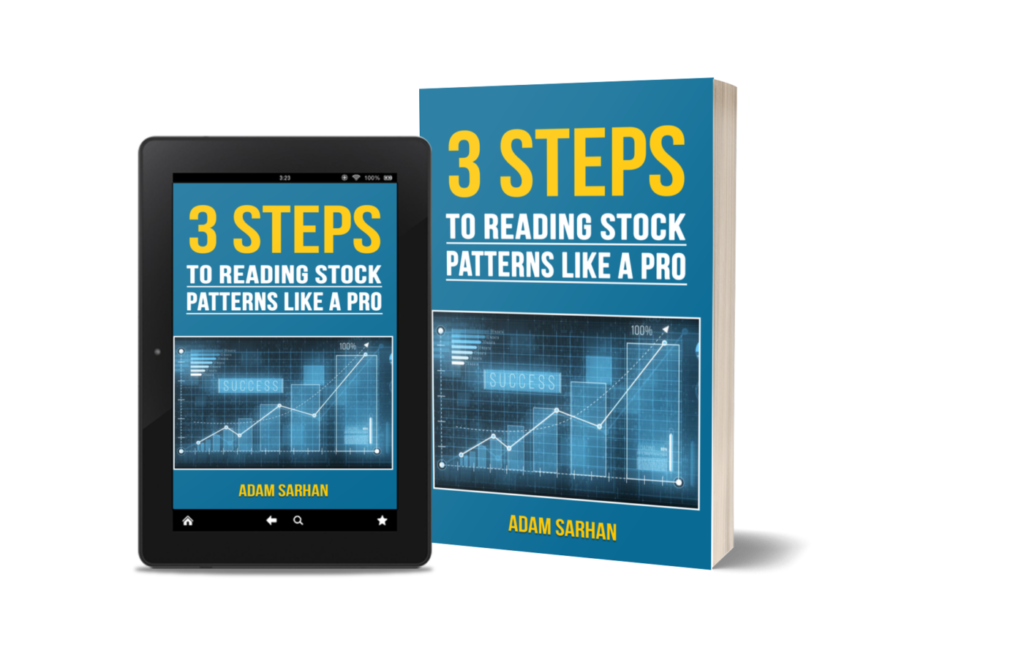 Trading is Like War
Trading is Like War
The stock market is a war between buyers and sellers, who each want to take the others money. The stock market is rough, and if you don’t approach it with the disposition of an irritated general, you will lose. In the stock market, nice guys finish last.
Sun Tzu’s “The Art of War” can be applied to many aspects of trading! Here are some lessons from the book and their application in trading:
“All warfare is based on deception.”
 Suppose you are a large hedge fund, and you want to accumulate a stock. You know that taking a sizeable position will move the stock higher, and you will end up paying higher prices as day traders jump into the frenzy.
Suppose you are a large hedge fund, and you want to accumulate a stock. You know that taking a sizeable position will move the stock higher, and you will end up paying higher prices as day traders jump into the frenzy.
With shares on the books already, you can afford to sell a little bit and paint the chart with a negative technical set up that should entice some selling pressure from nervous retail investors and overzealous short-sellers. That selling pressure will help you fill your larger buy order.
You may also do your buying in phases. Let the stock fall back and trigger stops, shake out nervous investors and free up stock to build the position. You may post fake orders in the Level 2 screen to make traders believe that there are large sellers and add further worry among the uncommitted buyers. These are just a few of the tactics they use.
Deception vs True Intention:
 As a trader, you have to be able to differentiate between deception and the true intention of large investors.
As a trader, you have to be able to differentiate between deception and the true intention of large investors.
Further words from Sun Tzu:
“Therefore, in your deliberations, when seeking to determine the military conditions, let them be made the basis of a comparison, in this wise:
(1) Which of the two sovereigns is imbued with the Moral law?
(2) Which of the two generals has most ability?
(3) With whom lie the advantages derived from Heaven and Earth?
(4) On which side is discipline most rigorously enforced?
(5) Which army is stronger?
(6) On which side are officers and men more highly trained?
(7) In which army is there the greater constancy both in reward and punishment?”
Let me translate this into stock market terms:
Among buyers and sellers, the side who will gather the greatest profits will be determined by:
(1) Which side believes that the stock market is always right (up or down)?
(2) Which side is led by the largest investors (bulls or bears)?
(3) Who is trading with the trend?
(4) On which side is discipline most rigorously enforced?
(5) Which side has more money?
(6) Which side has the best understanding of fear and greed, and how the crowd behaves when pressured by either?
(7) Which side lets profits run, and limits losses?
“…As circumstances are favorable, one should modify one’s plans.”
We should only add to winning positions and never average down on a loser. Profits are carried by momentum, and if you are on the right side of momentum, you can make a lot of money. If you are losing, stick to the plan and exercise stop losses. When winning, increase position size as new entry signals are confirmed.
“When you engage in actual fighting, if victory is long in coming, then men’s weapons will grow dull and their ardor will be damped. If you lay siege to a town, you will exhaust your strength.”
If the expectation of your trade is not working out in a timely fashion, then you have read the market wrong and it is best to exit the position.
“It is only one who is thoroughly acquainted with the evils of war that can thoroughly understand the profitable way of carrying it on.”
If you think the stock market is fair, quit trading immediately.
“If you know the enemy and know yourself, you need not fear the result of a hundred battles. However, if you know yourself but not the enemy, for every victory gained you will also suffer a defeat. If you know neither the enemy nor yourself, you will succumb to every battle.”
If you know the market and know yourself, you will consistently profit. But if you know the market and not yourself, your success will be random. If you do not know the market or yourself, you will consistently lose money. Success in the stock market is not just about the market, it is also about knowing how you react to fear and greed.
“The onset of troops is like the rush of a torrent which will even roll stones along in its course.”
The trend is your friend.
“The good fighters of old first put themselves beyond the possibility of defeat, and then waited for an opportunity of defeating the enemy.”
Good traders know that they can consistently make money, and that confidence fuels them to consistently make good decisions. They wait for an opportunity to present itself. Only when it does do they act.
“To lift an autumn hair is no sign of great strength; to see the sun and moon is no sign of sharp sight; to hear the noise of thunder is no sign of a quick ear.”
Great traders see more than the obvious.
“There are not more than five primary colors (blue, yellow, red, white, and black), yet in combination they produce more hues than can ever be seen.”
Keep stock trading simple. You need only understand support, resistance, optimism, pessimism, price volatility and abnormal behavior.




